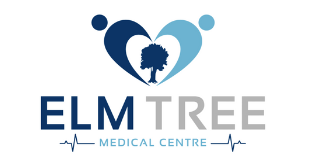CARE NAVIGATION/SIGN POSTING
Effective navigation is important to providing coordinated patient-centred care and support. Our Receptionists have been trained to signpost your calls to ensure that you are being seen by the most appropriate Clinician for your problem. For this reason they may ask you the nature of your call and your reasons for requesting an appointment.
Active signposting provides patients with a first point of contact (often the Receptionist) which directs them to the most appropriate source of help. Usually, this involves receptionists acting as care navigators who can ensure the patient is booked with the right person first time, while websites and apps can provide self-help and self-management resources as well as signposting to the most appropriate professional.
For example, the Receptionist will be able to signpost you directly to:
First Contact Practitioner – A First Contact Practitioner (FCP), is a healthcare professional working at the GP surgery, and being the ‘first contact’ for a patient who might have a musculoskeletal (MSK) problem. This means that you do not need to see a GP in order to see the FCP, you can ask to see them directly without referral if you have a musculoskeletal (MSK) problem and have not consulted a GP about the same problem before or if you are not already seeing a hospital specialist for the same problem. Please ask the Receptionist for further details.
Pharmacy First – The new Pharmacy First scheme enables your local pharmacy to treat some common conditions with prescription-only medicines, without you visiting your GP. Please click this link for further information: https://www.elmtreepractice.nhs.uk/2024/03/02/pharmacy-first/

CARE CO-ORDINATORS /SOCIAL PRESCRIBERS
Care co-ordinators
Care co-ordinators help to co-ordinate and navigate care across the health and care system, helping people make the right connections, with the right teams at the right time. They can support people to become more active in their own health and care and are skilled in assessing people’s changing needs. Care co-ordinators are effective in bringing together multidisciplinary teams to support people’s complex health and care needs.
They can be an effective intervention in supporting people to stay well particularly those with long term conditions, multiple long-term conditions, and people living with or at risk of frailty. Please ask Reception for guidance.
Who is a Social Prescriber and how can they help me?
Health can be affected by more than just physical harm to the body. Factors such as stress, unemployment, debt, loneliness, lack of education and support in early childhood, insecure housing and discrimination can affect 30-55% of our health outcomes. This is why the concept of ‘social prescribing’ has been introduced by the NHS to provide an integrated and holistic approach to healthcare.
Social prescribers (also called social prescribing link workers) work together with GP practices to ensure that the wider needs of patients are addressed. They connect patients to groups, activities and services in their communities to meet their social, emotional and practical needs that affect their health and wellbeing. They are the bridge between your GP and all the non-healthcare services available in your community.
Any member of your GP practice team may suggest a referral to a social prescriber. A social prescriber will then have an appointment with you to discuss your situation, assess your needs and advise you of support available in your community. You can talk to your social prescriber about any non-medical issue including debt, loneliness, education, discrimination, housing issues, etc. and they will be able to link you to the right services to support you. Whatever you’re facing, you don’t have to figure it all out by yourself.

